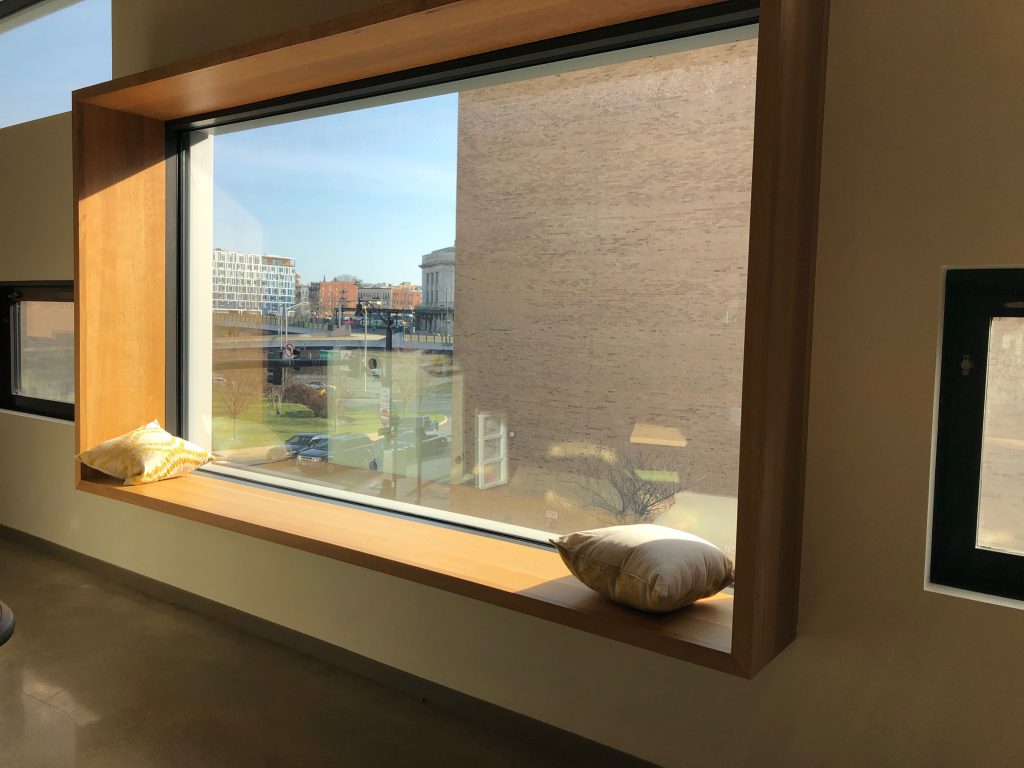In February and March 2020, life changed dramatically when the COVID-19 (coronavirus) pandemic began to spread in the United States. The pandemic has affected every person and almost every aspect of life. Work and school went online or stopped for many. Everyday tasks like visiting a grocery store, school, workplace, or library were transformed as we all began to self-quarantine and social distance from each other. While now many of the state imposed stay-at-home orders are being revised or lifted, the pandemic and impact of the virus continues to effect daily life. We may now see the world as ‘before the coronavirus’ and ‘after the coronavirus,’ because so much has changed.

Already, we often record our thoughts and observations about our lives using social media, blogs, art, and more. Consider documenting your experiences during the COVID-19 pandemic in some way so that in the future, you, your family, friends, your community, or others can better remember this time in history. These are uncertain and historic times, and your community’s experience is important. This April 13, 2020 New York Times article titled “Why You Should Start a Coronavirus Diary” offers a number of reasons to start a journal documenting life during the pandemic. You may want to keep a record of your time during COVID-19 to help you track and process your daily experiences, but you also never know how useful your experiences might be to future generations studying this point in history (Miller, 2020).
Your journal, videos, photographs, scrapbooks, audio recordings, or other methods you use to record your experience will provide a unique window into a unique time.
Angela Koukoui of the UB Special Collections & Archives began Community Archives Workshops at the University of Baltimore with Megan McShea in 2017 to help community members learn about preservation of local community history. As Angela explains, “preserving documents, and oral stories encourages broader historic narratives that would otherwise be lost. Community Archives offers those who are often unrepresented or overlooked, a chance to celebrate, and gain a better understanding of their history and identity.”
Every person and every community is experiencing these events differently. Documenting your story now can help provide a more complete understanding of the COVID-19 pandemic experience in Baltimore and in the U.S.
Not only can creating a personal record during the pandemic be a valuable way to look back at this point in history; it could also be a way to help people cope with any stress, anxiety, or other emotions resulting from this experience. It’s well documented that keeping a journal can improve mental health. This article titled “Journaling for Mental Health” from the University of Rochester Medical Center’s Health Encyclopedia explains that self-expression such as journaling can help people manage stress, anxiety, depression, and other emotions (Watson, Fraser, and Ballas). It makes sense then, that journaling and documenting life during the pandemic in other ways could help each of us better understand this experience and how it is effecting us.
Both the article from The New York Times and the University of Rochester Medical Center Health Encyclopedia article list a number of tips and ideas that you could use as you document or reflect on your experiences during the COVID-19 pandemic. Are you ready to record your history?
Below is a summary of a few of the tips mentioned in each article (check out the articles for more!):
- Pick a Method That Fits You: Keep a written journal, create a blog, take photographs, create a scrapbook, interview people and keep the audio or video files, cut out and collect sections of the local newspaper or other magazines, create art, write short stories or poetry, save your social media posts, or choose another creative outlet.
- Keep it Simple: Document your experiences every day or only when you feel like it; making it a routine could help you track and process daily events. Keep your laptop, phone, a paper journal, camera, or sketch pad handy so you can write or document whenever you want to. Avoid making this too complicated.
- Focus on What You Want (This is Your Story): Don’t worry about perfect writing or perfect photographs. You can write about, photograph, or document the same topics or ideas each day, or you could just focus on what you feel like at the moment. Write down ideas or entire stories. You can keep a box or folder for your collected magazine articles; or you can create your own scrapbook or photo album. If you post to social media, you might decide to regularly screenshot, print out, or collect your posts in a separate file. If you plan to keep a journal, check out the article from The New York Times for some writing topic ideas and more tips.
A journal or record created in any format chronicling or reflecting on your experiences may become your personal history, a family heirloom, part of your community’s history, or a future resource for others studying this period in time. However you decide to document your experiences, remember that your experience is unique and you or your community may find it invaluable in the future.
Around the country, there are numerous initiatives from archives, libraries, and historians working to document the experiences of individuals during the coronavirus pandemic. In Maryland, one initiative is the Collecting in Quarantine project from the Maryland Historical Society. If you are a Marylander interested in participating, check out their website for more information.
_________________________________________________________
References:
Miller, J.A. (2020, April 13). Why You Should Start a Coronavirus Diary. The New York Times. Retrieved from https://www.nytimes.com/2020/04/13/smarter-living/why-you-should-start-a-coronavirus-diary.html
Watson, L. R., Fraser, M. R., & Ballas, P. R. (medical reviewers). (n.d.). Health Encyclopedia: Journaling for Mental Health. University of Rochester Medical Center Rochester, NY. Retrieved from https://www.urmc.rochester.edu/encyclopedia/content.aspx?ContentID=4552&ContentTypeID=1